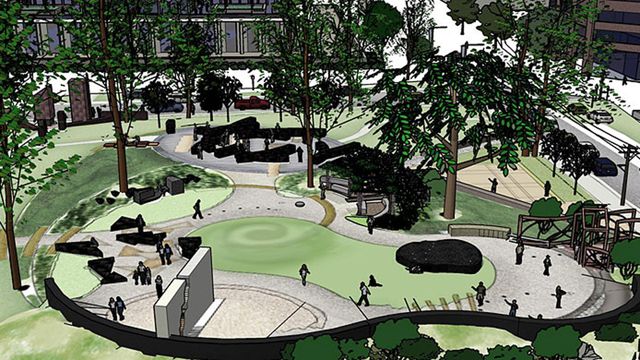Park planned for downtown Raleigh to highlight African-American legacy in NC
Organizers are one step closer to building a park dedicated to highlighting the African-American experience in North Carolina, but they still need financial support to making it a reality.
Posted — UpdatedThe organizers have leased the site, which is now an open green space, from the state for $10 million, but they need another $5 million to build an amphitheater and a sculpture park there.
"This is the time to really recognize the fact that African-Americans played a very important role in North Carolina from the very beginning and continue to do so," said David Warren, a professor emeritus at Duke University and co-chairman of the Freedom Monument Project. "A whole lot of things have happened in North Carolina – positive as well as some negative, and we want to show both."
Juan Logan, a painter, sculptor and retired professor of studio art at the University of North Carolina at Chapel Hill, Carrboro landscape architect David Swanson and UNC-Chapel Hill assistant professor of art history Lyneise Williams were chosen from more than 100 submissions to design the park, which hopes to articulate a vision of “freedom” captured through the experience of African-Americans in North Carolina.
"It’s hard to put up monuments for each person, but to put up a monument to the effort and to help us all learn from that effort, I think that’s where this fits in," said Chuck Watts, an attorney and Freedom Monument Project board member.
Organizers said they hope the park's proximity to the General Assembly will remind state lawmakers of the contributions made by African-Americans to North Carolina.
"It will be of educational use for school children coming through here and for the general public to learn more," Warren said.
Construction on the park must be started by 2022, or the site will revert to state control, according to terms of the lease.
• Credits
Copyright 2024 by Capitol Broadcasting Company. All rights reserved. This material may not be published, broadcast, rewritten or redistributed.





